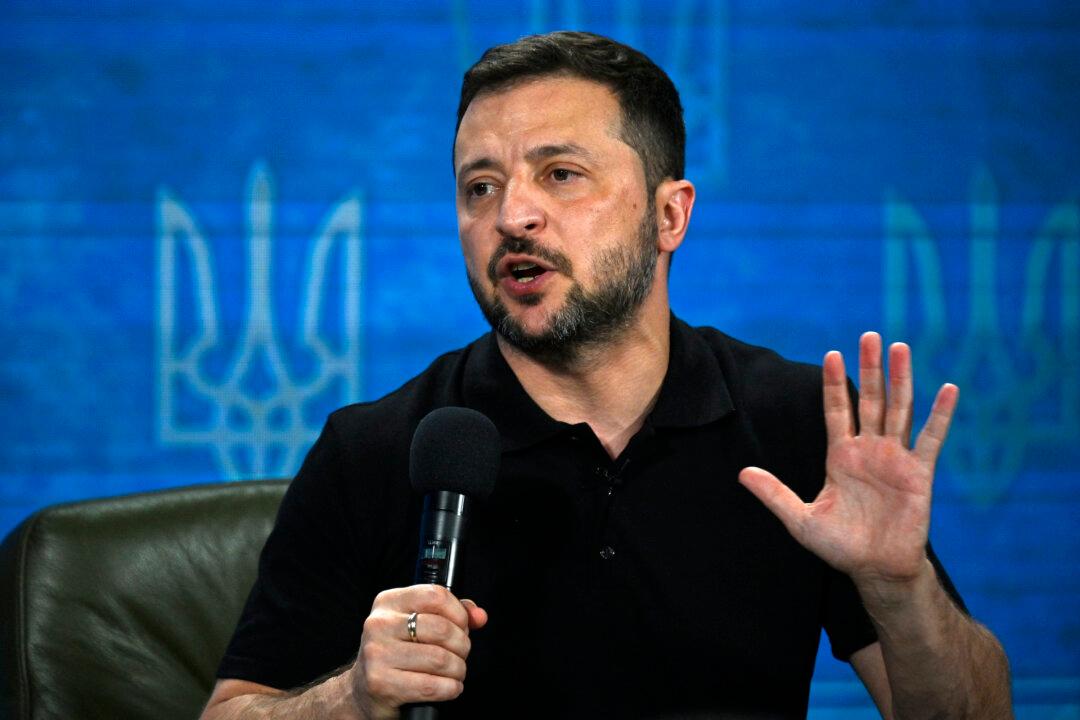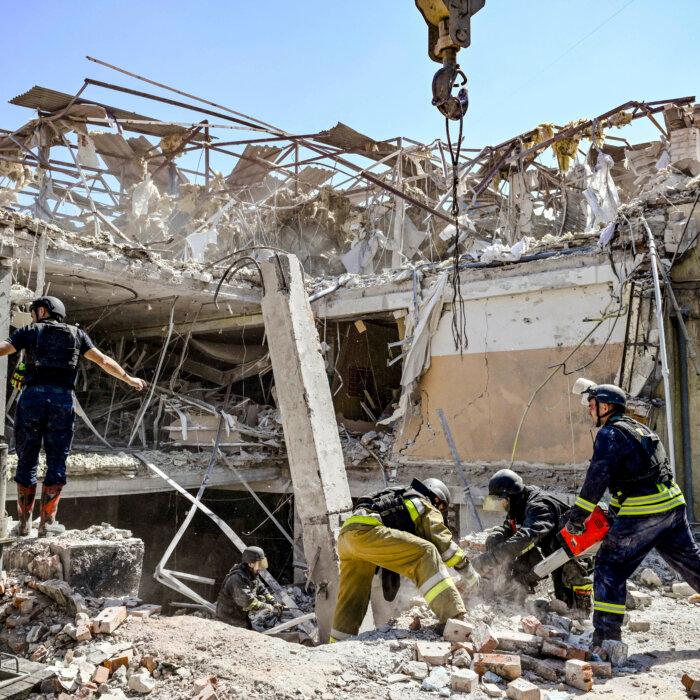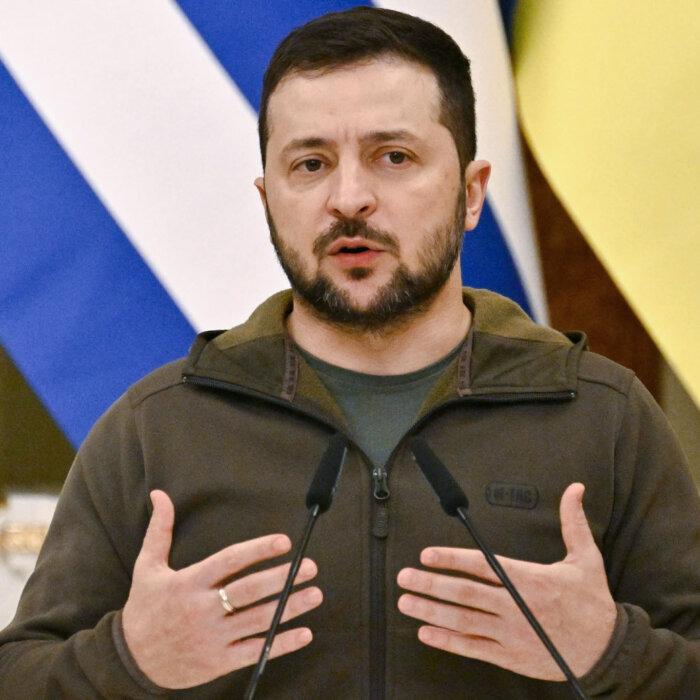Ukraine has drawn up a plan for ending its ongoing conflict with Russia that it plans to present to U.S. leaders, Ukrainian President Volodymyr Zelenskyy said.
“The main point of this plan is to force Russia to end the war,” Zelenskyy said on Aug. 27.
“I want that very much.”
However, he stressed that any negotiated settlement should be “fair for Ukraine.”
In 2022, Russia invaded—and effectively annexed—broad swaths of eastern and southeastern Ukraine.
Since then, war has continued to rage between the two countries, and Kyiv, backed by its Western allies, has vowed to recover all lost territory.
Speaking to reporters, Zelenskyy said Kyiv’s ongoing offensive in Russia’s Kursk region—now in its fourth week—was part of the plan.
He did not provide additional details, but he said he hoped to present the initiative to U.S. President Joe Biden sometime next month.
Zelenskyy also voiced hope of presenting the plan to U.S. Vice President Kamala Harris and former U.S. President Donald Trump, who are the major parties’ nominees for president.
Zelenskyy also said that he planned to attend an upcoming U.N. General Assembly meeting in New York City and that he hoped to soon hold a meeting with Biden.

‘No Compromises’
Following Russia’s 2022 invasion, Zelenskyy banned Ukrainian officials from communicating with Moscow—in any capacity—as long as Russian President Vladimir Putin remains in power.“There can be no compromises with Putin,” Zelenskyy said at the Aug. 27 news conference.
“Dialogue today is in principle empty and meaningless because [Putin] does not want to end the war diplomatically.”
But in light of continued Russian gains on the battlefield, especially in the eastern Donetsk region, Kyiv has appeared increasingly open in recent weeks to the prospect of peace talks.
In June, Switzerland hosted an international summit—at Kyiv’s request—with the stated aim of exploring prospects for peace.
Although representatives from 90 countries attended, Russian officials were not invited to the event.
Moscow responded by laying down its own terms for ending the conflict.
These include the full withdrawal of Ukrainian forces from four regions—Donetsk, Luhansk, Zaporizhzhia, and Kherson—that Russia effectively annexed in late 2022.
Under the Russian proposal, Kyiv would also be expected to drop its bid to join the Western NATO alliance and commit to a permanent state of neutrality.
Kyiv was quick to reject the terms, ruling out talks until Russian forces have withdrawn from all Ukrainian territory, including Crimea, which Russia annexed in 2014.
Nevertheless, in mid-July, Zelenskyy called for a second international summit to be held sometime later this year—this time with Russian participation.
Last week, however, Yury Ushakov, a top Putin aide, said that peace talks were currently out of the question because of Kyiv’s ongoing cross-border offensive in Kursk.
“Given this venture [in Kursk], we are not going to talk,” he said, echoing earlier statements by both Putin and Russian Foreign Minister Sergey Lavrov.
However, Ushakov said that the Russian proposal—which Putin himself articulated in June—remained on the table.
The timeframe for any future talks, he said, “depends on the situation, including on the battlefield.”
In previous remarks, Ukrainian officials have said that the Kursk offensive was primarily aimed at strengthening Kyiv’s negotiating position.
Moscow, however, has said it believes that the operation’s main aim—which it failed to achieve—was to capture or disable Kursk’s nuclear power plant, which provides electricity to several regions of Russia.







